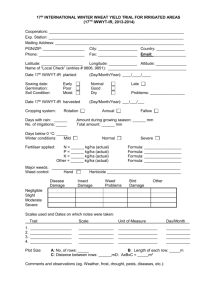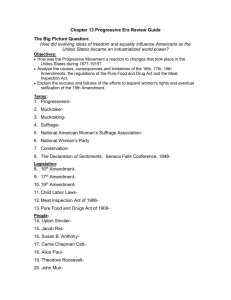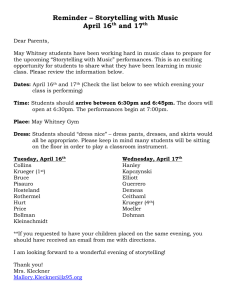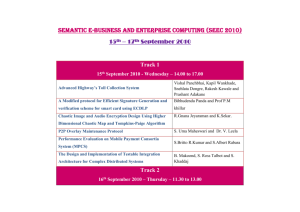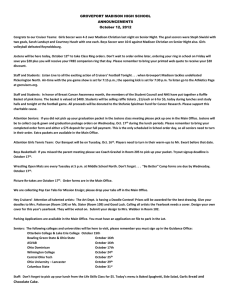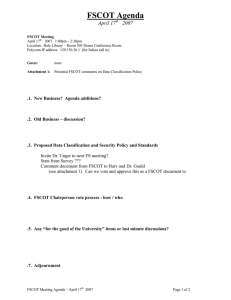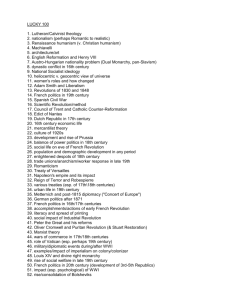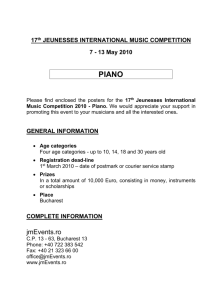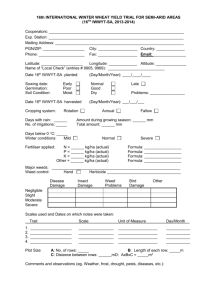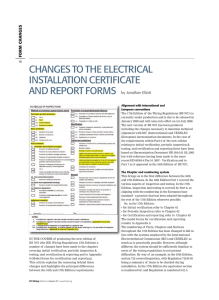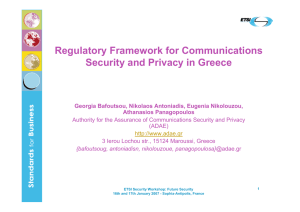Chapter 16 Study Guide - Laurel County Schools
advertisement
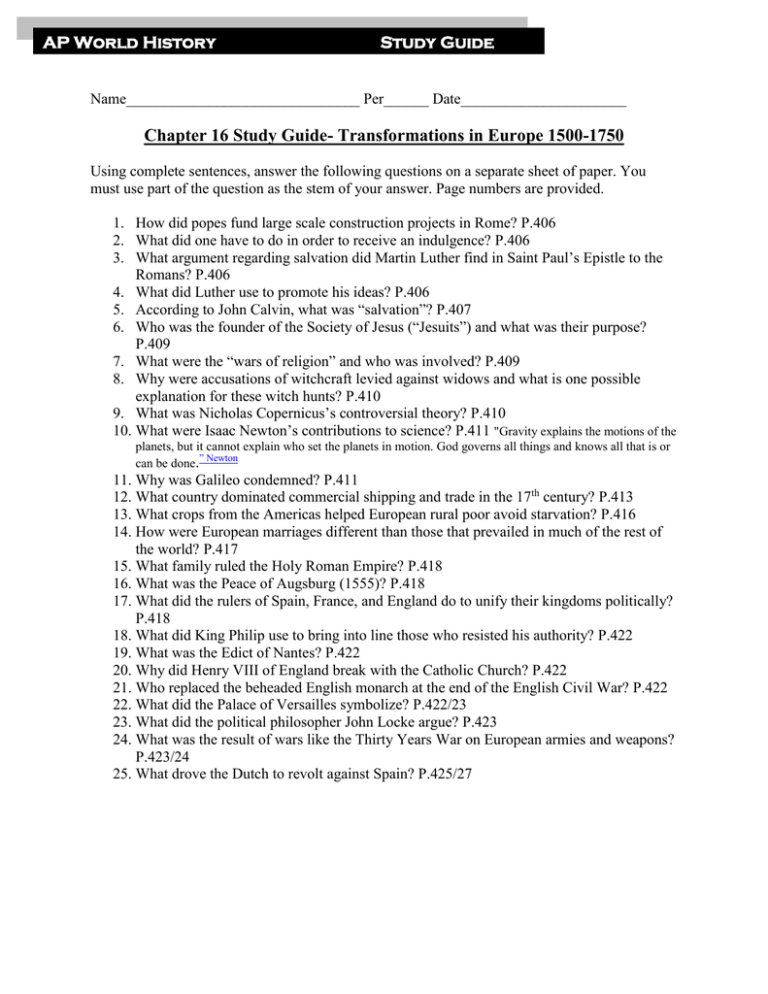
AP World History Study Guide Name_______________________________ Per______ Date______________________ Chapter 16 Study Guide- Transformations in Europe 1500-1750 Using complete sentences, answer the following questions on a separate sheet of paper. You must use part of the question as the stem of your answer. Page numbers are provided. 1. How did popes fund large scale construction projects in Rome? P.406 2. What did one have to do in order to receive an indulgence? P.406 3. What argument regarding salvation did Martin Luther find in Saint Paul’s Epistle to the Romans? P.406 4. What did Luther use to promote his ideas? P.406 5. According to John Calvin, what was “salvation”? P.407 6. Who was the founder of the Society of Jesus (“Jesuits”) and what was their purpose? P.409 7. What were the “wars of religion” and who was involved? P.409 8. Why were accusations of witchcraft levied against widows and what is one possible explanation for these witch hunts? P.410 9. What was Nicholas Copernicus’s controversial theory? P.410 10. What were Isaac Newton’s contributions to science? P.411 "Gravity explains the motions of the planets, but it cannot explain who set the planets in motion. God governs all things and knows all that is or can be done.” Newton 11. Why was Galileo condemned? P.411 12. What country dominated commercial shipping and trade in the 17th century? P.413 13. What crops from the Americas helped European rural poor avoid starvation? P.416 14. How were European marriages different than those that prevailed in much of the rest of the world? P.417 15. What family ruled the Holy Roman Empire? P.418 16. What was the Peace of Augsburg (1555)? P.418 17. What did the rulers of Spain, France, and England do to unify their kingdoms politically? P.418 18. What did King Philip use to bring into line those who resisted his authority? P.422 19. What was the Edict of Nantes? P.422 20. Why did Henry VIII of England break with the Catholic Church? P.422 21. Who replaced the beheaded English monarch at the end of the English Civil War? P.422 22. What did the Palace of Versailles symbolize? P.422/23 23. What did the political philosopher John Locke argue? P.423 24. What was the result of wars like the Thirty Years War on European armies and weapons? P.423/24 25. What drove the Dutch to revolt against Spain? P.425/27 Free Response Focus Questions: Answer these questions in a 5-7 sentence paragraph. In your own words! Do not simply copy from the book and memorize the response. Support your response with plenty of facts. Understand where events fall historically (global context, cause/effect, etc) 1. How did the basic tenets of Lutheranism and Calvinism differ from those of Catholicism? What was the Catholic response to the Protestant Reformation? 2. Discuss the failure of Charles V to unify Europe and the success of European royal monarchies to centralize state control in the 16th and 17th centuries. 3. Describe the disparities among the various social classes in European urban society between the 16th and 18th centuries. Who were the bourgeoisie? What conditions did the poorer classes endure? 4. Describe the experiences of women in the 17th and 18th century in Europe. Compare/Contrast: Write a well-developed thesis statement which clearly addresses similarities and differences. 5. Compare and contrast the political systems, especially the role of the monarch, in France and England in the 16th and 17th centuries.
